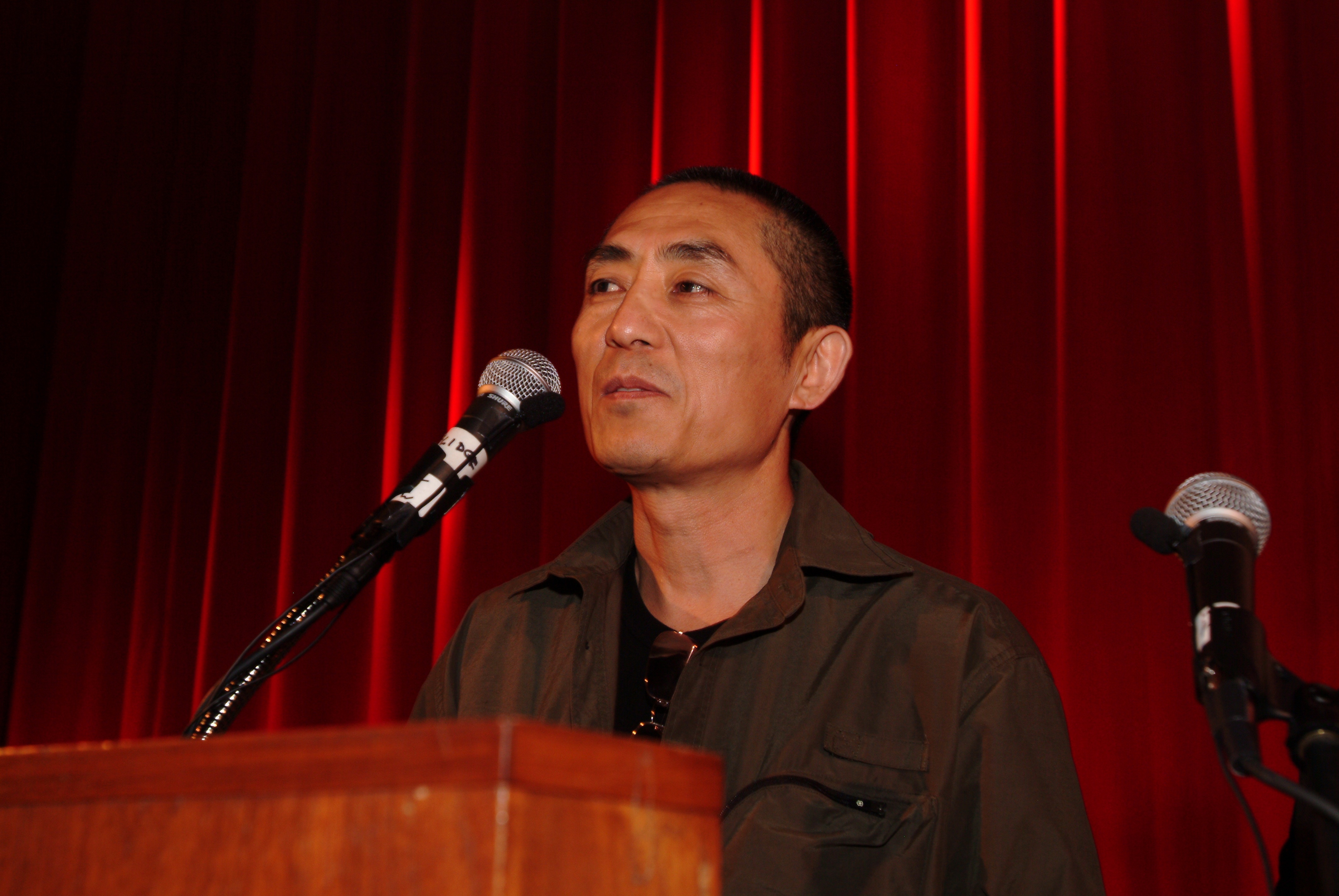
Our first Coolidge Award was original and challenging in itself! Bestowing the Award on one of the world's most cinematic directors meant getting him from Beijing to Brookline and creating two days of events appropriate to a non-English speaking filmmaker of international renown.
The 1st Coolidge Award
Our first-ever Coolidge Award included the following events:
-
A special advance screening of Zhang's new epic film Hero, followed by an in-depth discussion with the director about the production and issues raised by that film.
-
Seminars led by Professors Eileen Chow (Harvard University), Roy Grundmann (Boston University), and Xueping Zhong (Tufts University).
-
The Coolidge Award ceremony, where Zhang graciously accepted his award and predicted that in five or ten years, the Coolidge Award would be the prize "most sought after" by the world's filmmakers.
-
A repertory screening series.
About Zhang Yimou
Born in 1951 in Xi’an, The People’s Republic of China, Zhang Yimou was first brought to the attention of worldwide audiences in 1987 with the release of his first feature, Red Sorghum. The film, which starred rising actress Gong Li, won several international awards including the Golden Bear Award at the Berlin International Film Festival. Zhang went on to make two subsequent films, Ju Dou (1990) and Raise The Red Lantern (1991), also starring Gong Li and forming a trilogy which catapulted them both into the international spotlight.
The director made further headlines when Ju Dou and Raise The Red Lantern were banned from his homeland China, but enjoyed huge box office success in the U.S. and abroad. Zhang’s background as a graduate of the Beijing Film Academy in 1982, also secured him as a pivotal member of the significant film movement in China known as the “Fifth Generation.”
Along with other graduates of the Academy, such as Chen Kaige and Tian Zhuangzhuang, work from Fifth Generation filmmakers ventured into more realistic and human portraits of the Chinese way of life, its people and history.
With the releases of such films as The Story of Qiu Ju (1992), To Live (1994), Shanghai Triad (1995), Not One Less (1999), and the most recent, Hero (2003), due for U.S. theatrical release this summer by Miramax Films, Zhang continues to challenge restricted notions of Chinese culture and creates a stunning revisionist cinematic aesthetic.
